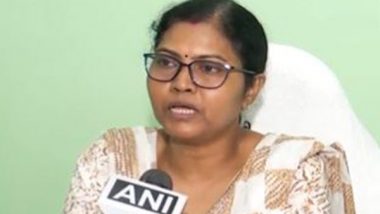Bhubaneswar (Odisha) [India], April 6 (ANI): As Odisha reels under hear wave conditions, India Meteorological Department (IMD) Director in Bhubaneswar, Manorama Mohanty, predicted 'no major change' in the next 24 hours and said that the heat wave will continue.
Adding to that, she said that rainfall is expected on April 7 and 8, which may lead to a drop in the temperature.
Also Read | Shab-E-Qadr 2024: Authorities Shut Gates of Srinagar’s Jamia Masjid Ahead of Laylat-Ul-Qadr.
"In the next 24 hours, there will not be major changes in the temperature. The temperature will dip some points but the heat wave condition will prevail and hot and humid conditions will also prevail. On 7 and 8 April, rain is expected in the state, leading to a dip in the temperature," she said.
Odisha is on high alert as a severe heatwave sweeps across the state, bringing scorching temperatures and challenging conditions for residents. With the mercury soaring to unprecedented levels, authorities are urging citizens to take immediate precautions to safeguard against the adverse effects of the blistering heat.
On April 5, the India Meteorological Department (IMD) issued a heatwave warning for Odisha, predicting temperatures to soar above 40-45 degrees Celsius in many parts of the state.
This prolonged period of extreme heat is expected to persist for the next two days, posing significant risks to public health and safety.
The impact of the heatwave is already being felt across Odisha, which is advising residents to stay indoors during the hottest parts of the day, typically between late morning and early evening, and to stay hydrated by drinking plenty of fluids.
Vulnerable populations, including the elderly, children, and those with pre-existing health conditions, are particularly at risk during this heatwave. Community organisations and local authorities are setting up temporary shelters and distributing drinking water.
In rural areas, where access to cooling facilities may be limited, farmers are facing challenges in protecting their crops and livestock from heat stress.
Agricultural experts are advising farmers to take measures such as providing shade and adequate water to mitigate the impact of the heatwave on agricultural production.
The heat wave is considered if the maximum temperature of a station reaches at least 40 degrees Celsius or more for plains and at least 30 degrees Celsius or more for Hilly regions. (ANI)
(This is an unedited and auto-generated story from Syndicated News feed, LatestLY Staff may not have modified or edited the content body)













 Quickly
Quickly










 GT
GT







